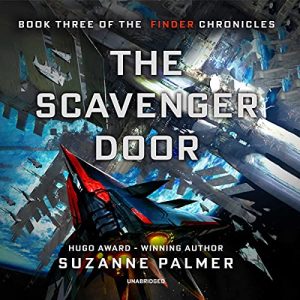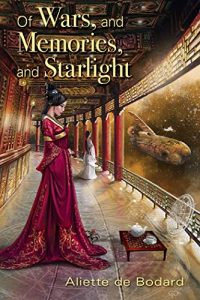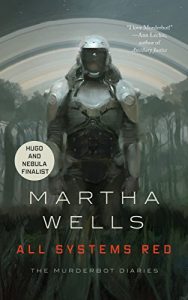 Lost to Eternity by Greg Cox
Lost to Eternity by Greg Cox Format: eARC
Source: supplied by publisher via Edelweiss
Formats available: paperback, ebook, audiobook
Genres: science fiction, space opera, Star Trek
Series: Star Trek: The Original Series
Pages: 400
Published by Pocket Books/Star Trek on July 23, 2024
Purchasing Info: Author's Website, Publisher's Website, Amazon, Barnes & Noble, Kobo, Bookshop.org, Better World Books
Goodreads
A thrilling new Star Trek “movie era” novel from New York Times bestselling author Greg Cox!
Three Eras. Three Mysteries. One Ancient Enemy?
2024: Almost forty years ago, marine biologist Gillian Taylor stormed away from her dream job at Sausalito’s Cetacean Institute—and was never seen or heard from again. Now a new true crime podcast has reopened that cold case, but investigator Melinda Silver has no idea that her search for the truth about Gillian’s disappearance will ultimately stretch across time and space—and attract the attention of a ruthless obsessive with his own secret agenda.
2268: The USS Enterprise ’s five-year mission is interrupted when Captain James T. Kirk and his crew set out to recover an abducted Federation scientist whose classified secrets are being sought by the Klingons as well. The trail leads to a barbaric world off limits to both Starfleet and the Klingon Empire—and an ageless mastermind on a quest for eternity.
2292: The Osori, an ancient alien species, has finally agreed to establish relations with its much younger the Federation, the Klingons, and the Romulans. A joint mission involving ships from all three powers, including the Enterprise -A , turns explosive when one of the Osori envoys is apparently killed. Each side blames the others, but the truth lies buried deep, nearly three hundred years in the past…
My Review:
Star Trek IV: The Voyage Home (the one with the whales), was one of the great movies of the Original Series movie era, alongside The Wrath of Khan. Voyage Home had something for everyone, in that it told a great story, had lots of sweet moments of nostalgia for fans, addresses important and still relevant issues of its day with its tale of species extinction, had oodles of funny scenes and memorable, quotable lines – and ends with a heartwarming scene of the ‘band getting back together’ in a crowning moment of awesome.
It also presents a heaping helping of wish fulfillment for legions of fans then and now as the 20th century cetacean biologist, Dr. Gillian Taylor, time travels with the crew of the Enterprise and the whales George and Gracie from her time to their 23rd century.
It was the stuff that both dreams and fanfic were made of.
But it left a mystery in Taylor’s time that, nearly forty years later, is still unsolved. That mystery serves as the inspiration for a true-crime podcast – because of course it would. And thereby, as the saying goes, hangs this tale that spans from intrepid podcasters in 2024 to a medical researcher’s abduction in 2268 and onward to a planned peace conference with an advanced species in 2292.
What do those three widely separated incidents have in common? None other than Captain James T. Kirk, the crew of the U.S.S. Enterprise – with or without their equally famous ship – and an enemy that no one saw coming.
 Escape Rating B: Like most media novelizations, Lost to Eternity is absolutely a story for the fans – and not just because of its homage to the fanservice of Dr. Gillian Taylor’s fate in Star Trek IV.
Escape Rating B: Like most media novelizations, Lost to Eternity is absolutely a story for the fans – and not just because of its homage to the fanservice of Dr. Gillian Taylor’s fate in Star Trek IV.
There are three separate stories in this one, set in 2024, 2268 and 2292. At first, with the focus on the podcasters in 2024, the story is thoroughly grounded in our here and now. It’s easy to get caught up in Melinda Silver’s need to find out what happened to Taylor, and the way that it devolves into conspiracy theories and men in black even as it picks up the remaining threads of Voyage Home as seen through the eyes of the people those events left behind in puzzlement was absolutely riveting.
If you’ve ever wanted the X-Files to cross with Star Trek, that part of this story is pretty much that story.
But the story unwinds across all three eras in turn, so the 2024 chapter is followed by a 2268 chapter and then a 2292 chapter. It all makes sense in the end – but as it goes along it takes a long time and a lot of pages to get a glimmer of just what makes these three stories connect up.
At the same time, the stories in each of the timelines and the way that they are interwoven with previous (from a certain point of view) events in the Star Trek timeline as a whole allows for a whole lot of loose ends from an amazing number of stories to get referenced and eventually closed – which goes back to this being a story for the fans because the more of those loose ends that one recognizes the more familiar – and fun – the story feels.
I had a good time with this story – as I always do when I pick one of these up. I love slipping back into this familiar and beloved universe, and that carried me over the points late in each timeline’s story where I just wanted to see all the dots get connected – and to see if the connections that my brain was making were the ones the author intended to make.
In the end, I enjoyed all three of the individual stories, liked the way they merged, had fun with the way they tied up different loose ends, and loved spending time with these characters. I also thought the author did a great job of making sure that the stories got told from different perspectives – that it wasn’t all Kirk and Spock saving the day no matter how much I do love those stories.
But I found the villain just a bit flat. He read a lot like Arne Darvin, the villain of the episodes The Trouble with Tribbles (TOS) and Trials and Tribble-ations (DS9)combined with the motive but not the scenery chewing of the villains in Star Trek: Insurrection. The villain of Lost to Eternity unfortunately got all of his character from Darvin – who was fairly colorless. A little bit of scenery chewing might have improved him a bit – for select definitions of the word ‘improvement’. Perhaps it would be better to say that a little bit of scenery chewing might have made him a bit more colorful – and interesting.
Still, a good reading time was absolutely had by this reader and I loved the way that it did exactly what Voyage Home did – it connected our present with Star Trek’s future and dreamed a dream of getting from here – to there.

 Earthlight by
Earthlight by  I NEED a text so I can hunt for quotes AND have a full list of characters, how their names are spelled and who played them in the audio. Because the cast was outstanding – every single one.
I NEED a text so I can hunt for quotes AND have a full list of characters, how their names are spelled and who played them in the audio. Because the cast was outstanding – every single one. This Great Hemisphere by
This Great Hemisphere by  “Better Living Through Algorithms” by Naomi Kritzer in Clarkesworld Magazine Issue 200, May 2023) by
“Better Living Through Algorithms” by Naomi Kritzer in Clarkesworld Magazine Issue 200, May 2023) by  Unexploded Remnants by
Unexploded Remnants by  “The Year Without Sunshine” by Naomi Kritzer in Uncanny Magazine Issue 55, November-December 2023 by
“The Year Without Sunshine” by Naomi Kritzer in Uncanny Magazine Issue 55, November-December 2023 by  Ghostdrift (Finder Chronicles #4) by
Ghostdrift (Finder Chronicles #4) by  Over the course of the series (
Over the course of the series ( Escape Rating A+: June is Audiobook Month, and this final book in the
Escape Rating A+: June is Audiobook Month, and this final book in the  Together, those three plots, Belos’ need for closure, Captain Ahab – actually Captain Todd – following Belos where no one REALLY should have gone before, or again, and all the crews stuck on their very own tiny Gilligan’s Island planetoid, doing their best – or worst – to get along well enough to get back home.
Together, those three plots, Belos’ need for closure, Captain Ahab – actually Captain Todd – following Belos where no one REALLY should have gone before, or again, and all the crews stuck on their very own tiny Gilligan’s Island planetoid, doing their best – or worst – to get along well enough to get back home.
 "The Mausoleum's Children" by Aliette de Bodard in Uncanny Magazine Issue 52, May-June 2023 by
"The Mausoleum's Children" by Aliette de Bodard in Uncanny Magazine Issue 52, May-June 2023 by  I put this particular story towards the front of the list because of the author. I’ve very much enjoyed her
I put this particular story towards the front of the list because of the author. I’ve very much enjoyed her  The obvious bit is wrapped around Thuận Lộc’s need to belong, her guilt about not bringing her peeps out with her, and her attempt to assuage just a piece of that trauma. But there’s also more than a bit about abuse and its victims, Stockholm Syndrome writ very, very large, and the rapaciousness of greed for power in all forms and the way that some people try to escape evil by getting on top of it or allowing themselves to be co-opted by it.
The obvious bit is wrapped around Thuận Lộc’s need to belong, her guilt about not bringing her peeps out with her, and her attempt to assuage just a piece of that trauma. But there’s also more than a bit about abuse and its victims, Stockholm Syndrome writ very, very large, and the rapaciousness of greed for power in all forms and the way that some people try to escape evil by getting on top of it or allowing themselves to be co-opted by it. We Speak Through the Mountain (Annual Migration of Clouds, #2) by
We Speak Through the Mountain (Annual Migration of Clouds, #2) by  Escape Rating B+: I had not read
Escape Rating B+: I had not read  Service Model by
Service Model by  Escape Rating A+: I went into this completely unsure of what to expect, and that blurb of
Escape Rating A+: I went into this completely unsure of what to expect, and that blurb of